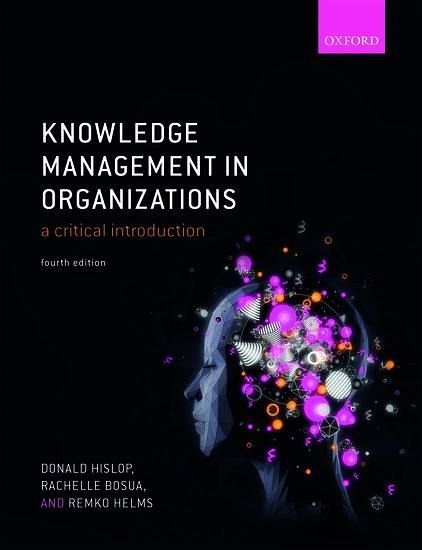
Donald Hislop (Loughborough University)Rachelle Bosua (The University of Melbourne)Remko Helms (Open University of The Netherlands)
Broschiertes Buch
Knowledge Management in Organizations
A Critical Introduction
Versandkostenfrei!
Versandfertig in 2-4 Wochen

PAYBACK Punkte
47 °P sammeln!




The most comprehensive and critical textbook on knowledge management, in an accessible, concise format.
Donald Hislop, Loughborough University Rachelle Bosua, The University of Melbourne, Remko Helms, Open University of The Netherlands
Produktdetails
- Verlag: Oxford University Press
- 4 Revised edition
- Seitenzahl: 344
- Erscheinungstermin: 29. Mai 2018
- Englisch
- Abmessung: 243mm x 186mm x 20mm
- Gewicht: 670g
- ISBN-13: 9780198724018
- ISBN-10: 0198724012
- Artikelnr.: 51252832
Herstellerkennzeichnung
Libri GmbH
Europaallee 1
36244 Bad Hersfeld
gpsr@libri.de
Für dieses Produkt wurde noch keine Bewertung abgegeben. Wir würden uns sehr freuen, wenn du die erste Bewertung schreibst!
Eine Bewertung schreiben
Eine Bewertung schreiben
Andere Kunden interessierten sich für











